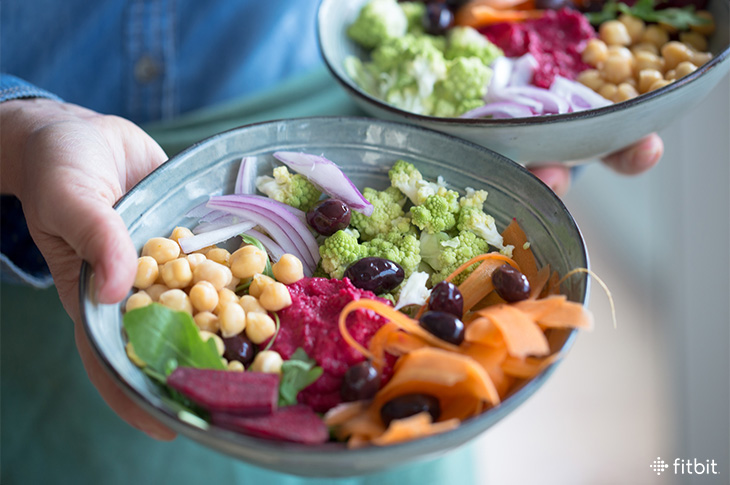
There’s a good chance you’ve been asked by a health professional, “Has anyone in your family ever had…?” It’s pretty widely accepted that certain conditions run in families. So if your mom, dad, or a sibling has had diabetes, heart disease, or certain cancers, for example, you may have an increased chance of getting it, too. But epigenetics, an exciting new science that studies how your lifestyle affects your DNA, suggests your fate may not be entirely out of your control.
Like many science experiments, one of the first discoveries of epigenetics happened in a lab filled with mice. These particular mice carried the agouti gene, which made them yellow in color, obese, and prone to diabetes and cancer. And their babies seemed destined for the same unhealthy fate.
But when a team of researchers started feeding the parent mice vitamins, they discovered that the mice produced babies who no longer showed signs of carrying the agouti gene. The baby mice were born brown, slim, and healthy—even though the gene was still hidden in their DNA. It turns out, the vitamins added a chemical compound to the mother’s DNA, called methyl. And by methylating the agouti gene, the researchers basically switched it off, lowering the susceptibility to obesity, diabetes and cancer for the next generation of mice.
Why should you care about healthy baby mice? Because researchers have shown this same process can occur in humans—and not just prenatally. By making healthier life choices, you may actually be able to change your body at a cellular level. The key lies in your epigenome.
Eat to Beat Bad Genes
You’ve probably heard the word genome—the unique set of genes you inherit from your parents. Well, the epi-genome are chemical compounds that attach to your DNA and decide which of your genes are switched on or off. Your epigenome is also inherited, but unlike your genome, which is set in stone, it’s reversible.
“Nutrients in food can impact gene expression,” says Fitbit advisor Joan Salge Blake, EdD, RDN, clinical associate professor in the department of health sciences at Boston University, which is good news if you were dealt a tough hand of DNA. “You may not be able to pick your family,” says Salge Blake, “but you can pick your diet.” Of course, the opposite is also true—make mostly unhealthy food choices and you can eat your way sick.
With that in mind, below are the nutrients that affect our epigenome and where to find them. Aim to eat a variety of these foods in moderation while also cultivating other DNA-friendly habits. Squeezing in more steps, getting enough sleep, keeping your gut healthy, and finding time to meditate, are some of the ways researchers believe can help silence those disease-causing genes. And, when combined with epigenetics, they can also help limit the effects of your ancestors’ poor choices, potentially impacting the health of your family’s future generations. Makes living a healthy lifestyle even more compelling, doesn’t it?
| Nutrient | Food Source |
| Methionine | Sesame seeds, Brazil nuts, fish, peppers, spinach |
| Folic acid | Leafy vegetables, sunflower seeds, baker’s yeast, liver |
| Vitamin B12 | Meat, milk, shellfish, liver |
| Vitamin B6 | Meat, whole grains, vegetables, nuts |
| Choline | Egg yolks, soy, liver |
| Betaine | Wheat, spinach, shellfish, beets |
| Resveratrol | Red wine |
| Genistein | Soy and soy products |
| Sulforaphane | Broccoli |
| Butyrate | High-fiber foods, like whole-wheat pasta, lentils, beans, bananas, onions, and asparagus |
| Diallyl sulphide (DADS) | Garlic |
This information is for educational purposes only and is not intended as a substitute for medical diagnosis or treatment. You should not use this information to diagnose or treat a health problem or condition. Always check with your doctor before changing your diet, altering your sleep habits, taking supplements, or starting a new fitness routine.

If you have questions about a Fitbit tracker, product availability, or the status of your order, contact our Support Team or search the Fitbit Community for answers.
Please note: Comments are moderated and may not appear immediately after submission.